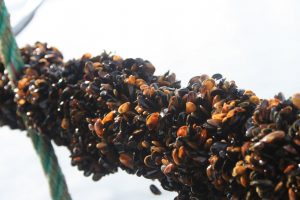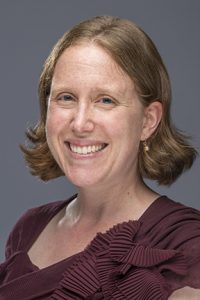Laura N. Rickard, Assistant Professor, Department of Communication & Journalism and UMaine Sustainable Ecological Aquaculture Network (SEANET)
 As wild fisheries decline, aquaculture – the cultivation of aquatic organisms, such as fish, crustaceans, mollusks, and seaweed – will provide the majority of the seafood consumed in the U.S. Scientific and technological advances over the past three decades have made American aquaculture production increasingly environmentally sustainable and economically viable: a source of local jobs and affordable food. Yet, a legacy of environmental and human health concerns, and current controversy surrounding siting operations and the use of genetically modified species, suggest that perceived risks of aquaculture may loom large. As domestic aquaculture expands, knowing what U.S. publics think – in order to design strategic risk communication, and foster support for policy – will be increasingly critical to industry and government sectors alike. This presentation draws on recent and ongoing approaches to measuring perceptions and representations of aquaculture in the U.S. through UMaine’s Sustainable Ecological Aquaculture (SEANET) EPSCoR project – including focus groups, surveys, and news media content analysis. Based on these emergent results, I explore implications for communicating about aquaculture with public audiences, and next steps for applying lessons learned to the context of Maine.
As wild fisheries decline, aquaculture – the cultivation of aquatic organisms, such as fish, crustaceans, mollusks, and seaweed – will provide the majority of the seafood consumed in the U.S. Scientific and technological advances over the past three decades have made American aquaculture production increasingly environmentally sustainable and economically viable: a source of local jobs and affordable food. Yet, a legacy of environmental and human health concerns, and current controversy surrounding siting operations and the use of genetically modified species, suggest that perceived risks of aquaculture may loom large. As domestic aquaculture expands, knowing what U.S. publics think – in order to design strategic risk communication, and foster support for policy – will be increasingly critical to industry and government sectors alike. This presentation draws on recent and ongoing approaches to measuring perceptions and representations of aquaculture in the U.S. through UMaine’s Sustainable Ecological Aquaculture (SEANET) EPSCoR project – including focus groups, surveys, and news media content analysis. Based on these emergent results, I explore implications for communicating about aquaculture with public audiences, and next steps for applying lessons learned to the context of Maine.
 Dr. Laura N. Rickard is a social scientist specializing in the role of communication in the context of environmental, health, science, and risk-related issues, from visitor safety in national parks to climate change adaptation. Prior to coming to UMaine in 2015, she held a faculty position at SUNY College of Environmental Science & Forestry in Syracuse, NY. She holds a Ph.D. in Communication from Cornell University.
Dr. Laura N. Rickard is a social scientist specializing in the role of communication in the context of environmental, health, science, and risk-related issues, from visitor safety in national parks to climate change adaptation. Prior to coming to UMaine in 2015, she held a faculty position at SUNY College of Environmental Science & Forestry in Syracuse, NY. She holds a Ph.D. in Communication from Cornell University.

